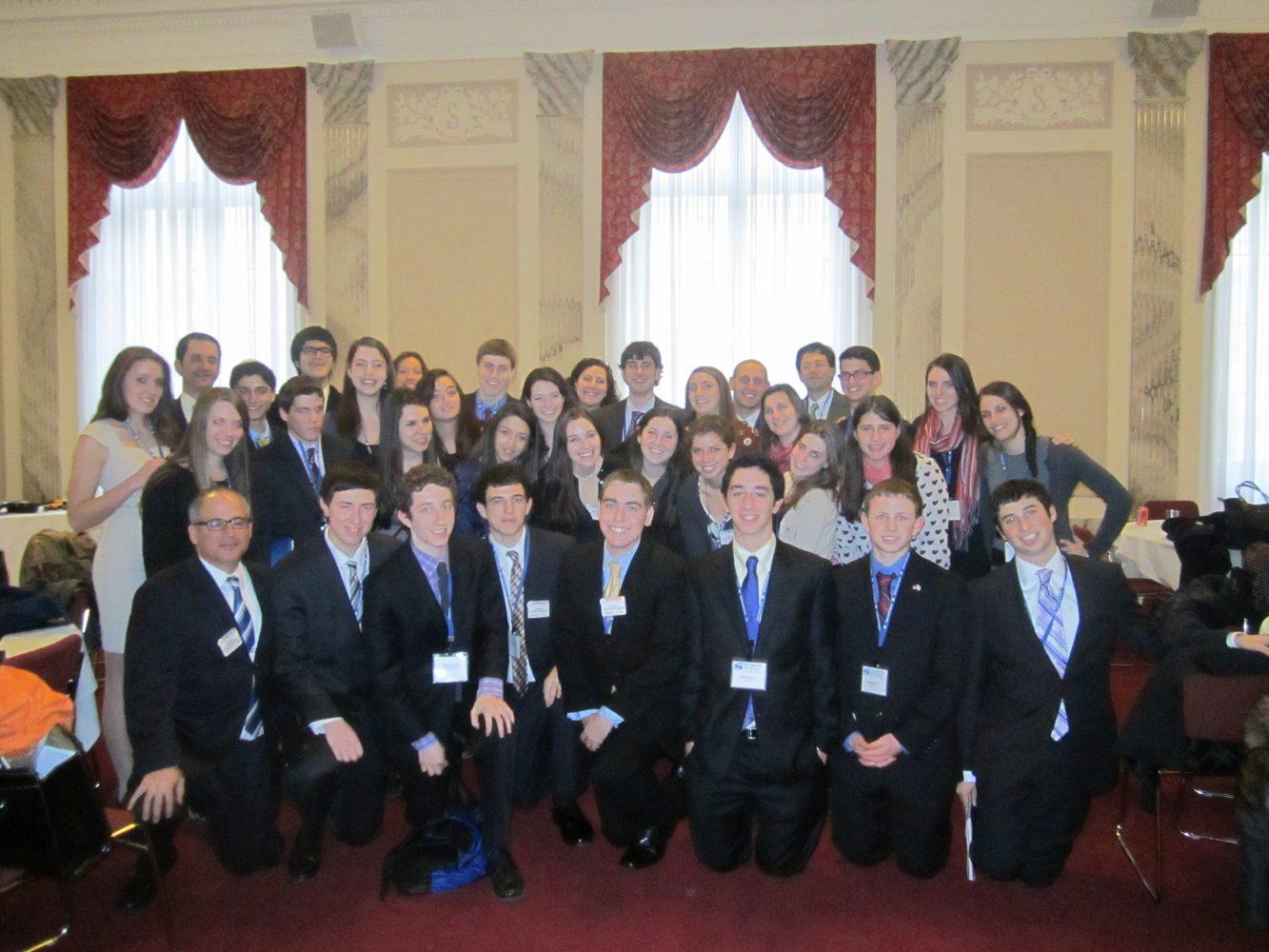Lobbying can often be associated with the corrupt, but fighting for a cause can mean so much more than what is seen from the outside. Get an inside look on an experience in Washington, D.C.
I am a Senior Fellow in Write On for Israel, a two-year Israel education and advocacy program of the Jewish United Fund’s (JUF) Israel Education Center. During my junior year of high school I learned how to advocate for Israel effectively, and then had a two-week life-changing Israel experience in which I experienced the Israeli-Palestinian conflict head-on. The second year of Write On focuses on giving back to the community through a variety of projects to educate others in the Chicago area. The program for senior year also includes a one-day “fly-in” to Washington, D.C., to lobby Congress to support issues relating to Israel and the Jewish community.
When I heard that 30 Write On seniors were going to lobby members of Congress, I was skeptical. Even though none of us were paid lobbyists, the idea of swaying or influencing a public official was something I wasn’t comfortable doing. I had learned about the corruption that often follows lobbying in politics, and I didn’t like that lobbying was such a force in the American political system.
That skepticism changed, however, when my five-person group walked into the Congressional office of Representative Tim Johnson from the 15th District of Illinois. We met with one of Rep. Johnson’s legislative assistants and presented our issues: supporting sanctions against Iran, maintaining military aid to Israel, supporting an amendment to add Holocaust survivors to the Older Americans Act (a bill proposed in the House of Representatives to add Holocaust survivors to a list of targeted senior groups to receive additional special care and benefits) and supporting the Raoul Wallenberg Centennial Celebration Act (to honor the Swedish diplomat who saved many Jews from death during WW II). Our conversation with the assistant was formal, but very natural. I didn’t feel as if I was “lobbying,” but rather explaining the importance of these issues and why I felt so strongly about them.
Meeting with Rep. Jan Schakowsky was an amazing experience as well. Here we were, a group of Jewish high school students, having a conversation about Israel with our Jewish congresswoman. With tensions mounting between Israel and Iran, Rep. Schakowsky showed us her strong support for Israel. On the possibility of an Israeli strike on Iran, Schakowsky told us that “if there is something major, the question for the U.S. would be to what extent we will join Israel. To what extent can we engage the international community?” Rep. Schakowsky emphasized that there was no question whether the United States would come to Israel’s aid if there was an attack, but rather questioned how much the U.S. should be involved. Hearing the Congresswoman’s words assured me that the United States is doing everything in its power to help Israel.
The moment I realized that Write On Fellows were not lobbying, but advocating, was when our group met with Illinois Rep. Robert Dold. Rep. Dold told us that “emails and letters and phone calls all are important, but nothing is more important than coming here [to Washington] and lobbying as you [all] are doing today.” Rep. Dold also congratulated us on flying to Washington to educate him and other Congressmen on these issues. Some would say that we were lobbying, but I would argue that we were 30 individuals coming together to advocate on behalf of Israel and the Jewish community in Chicago. We flew to Washington to tell our congressmen to support us in what we care about, and they all responded with tremendous support.
Our day went on, and we talked with other advisers and interns of different congressmen, and then we met with White House official Jarrod Bernstein, the Director of Jewish Outreach from the Office of Public Engagement, at the Eisenhower Executive Office Building. We were able to have an in-depth discussion about the issues. He told us that when he speaks with lobbyists “people usually say ‘This is what I need’ and complain. Saying ‘thank you’ is not done a lot. It’s a very effective way to get attention.” He was pleased that we thanked him and the Obama administration for their support for Israel, and then told him what we wanted from the president. Bernstein called this method getting hit with a velvet bat – you feel the soft fabric (the compliment) and then you feel the hard hit (the issues we wanted to talk to him about). Meeting with Bernstein was a fascinating and entertaining way to cap off our day in Washington.
When our group had the chance to reflect on our day during dinner, a lot of the Fellows mentioned that they learned that Congress was not just a bunch of old guys fighting all the time, but worked together to solve issues, such as imposing sanctions on Iran. What did I take away from our trip? I learned that we weren’t lobbyists trying to persuade Congress to support our specific issues. We are high school students who took time out of our normal lives to speak to members of Congress about issues that are important to us. We spoke from the heart about issues that we care about and will have an impact on our lives. In my view, this is what distinguishes the fine line between a lobbyist and an advocate.















